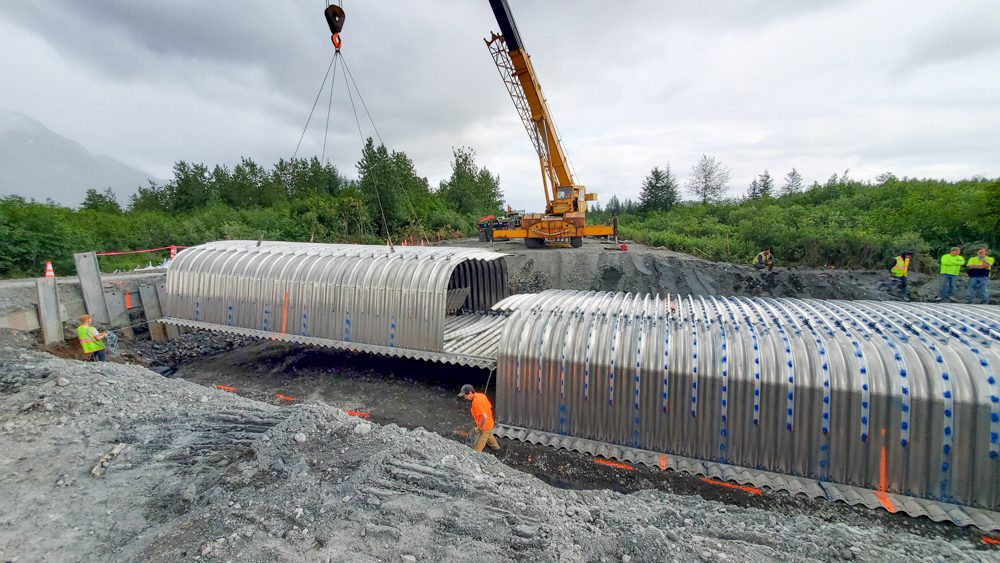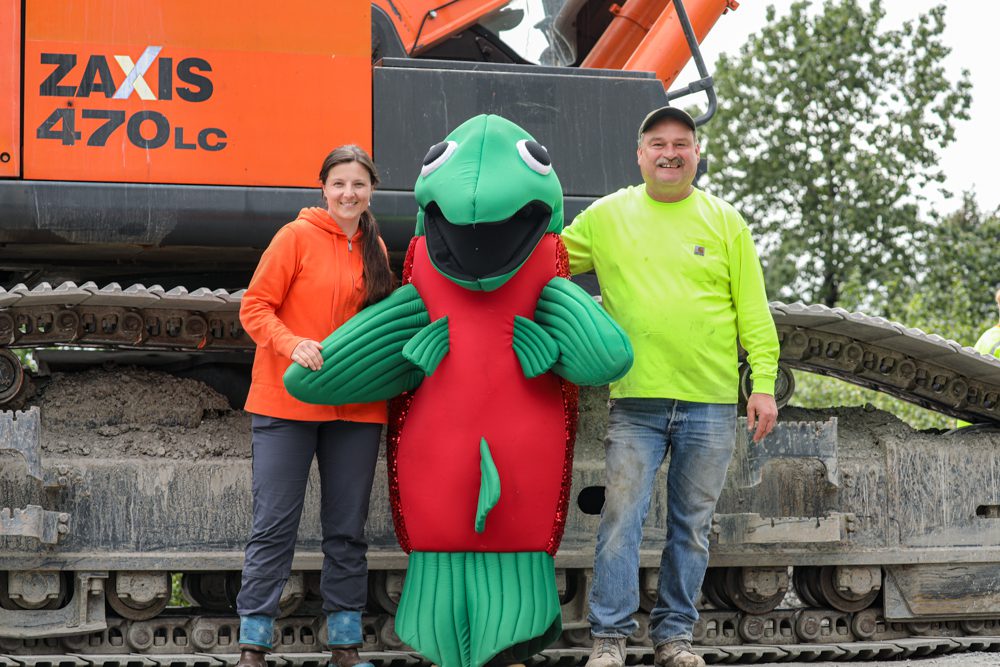
A 75-foot fish-friendly culvert was installed at mile 18 of the Copper River Highway on Friday, July 23. The spacious “box” culvert was the third of three to be installed this year, replacing narrower culverts that are often difficult for fish to pass through. Box culverts like these, which protect road infrastructure during high-water events, are expected to become the norm in the future, said Copper River Watershed Project Executive Director Lisa Docken.
The replacement was part of an Exxon Valdez Oil Spill Trustee Council-funded project to replace 12 culverts and remove one culvert in the Copper River Watershed area over the course of five years. Project organizers will spend the coming winter designing culverts to be installed next summer, Docken said.
Three box culverts were also installed in 2020. Installation work for all six culverts was done by Wilson Construction. The company, which has handled previous culvert installations around the watershed, managed the challenging operation of assembling the culverts on-site despite sometimes challenging conditions, Docken said. The culvert installed at mile 18 of the highway was brought to the site in two sections because it would have been too long to transport otherwise.
“We had some pretty serious rain this summer, which definitely put a wrench in things in terms of productivity, but they rallied and they were still able to complete the work virtually on time,” Docken said. “We’re very lucky that things worked out.”

Amanda Williams, a VetsWork intern working with the U.S. Forest Service, who attended the culvert placement, said the operation proceeded smoothly.
An overflow pipe will be installed at the site, an operation which is expected to be finished within a few weeks, Docken said. Mile 18 of the highway was closed from July 29-30 as work continued. Project organizers have tried to minimize the amount of time road access is impacted by their work, Docken said.
“We really appreciate the community’s… understanding when we do have periodic road closures — that there are some inconveniences,” Docken said.
The project is organized by the CRWP in partnership with the USFS, the Department of Fish and Game, the Department of Transportation and Public Facilities, the National Oceanic Atmospheric Administration and the U.S. Fish and Wildlife Service.





